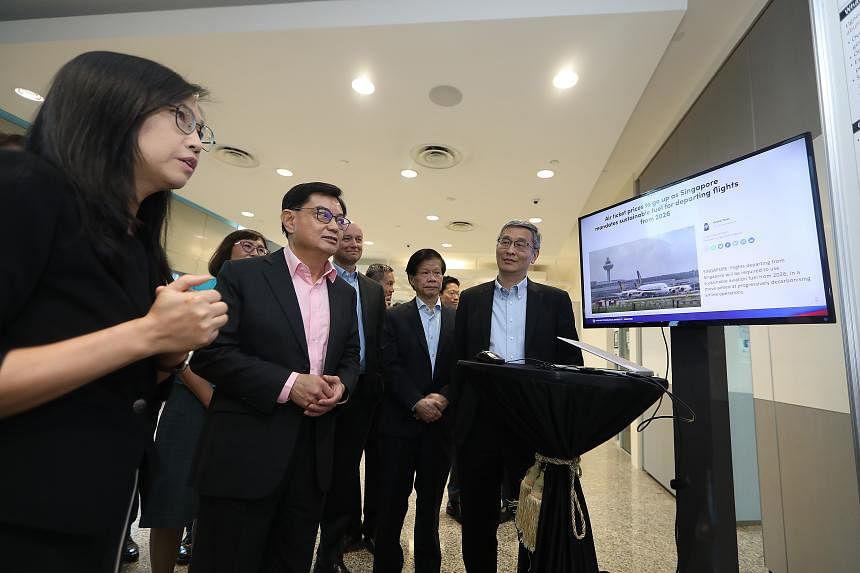SINGAPORE – To help Singapore achieve net-zero emissions by 2050, a $60 million lab has been launched to drive research and development in low-carbon technologies.
The corporate lab, launched on April 26, is a joint effort by the Nanyang Technological University (NTU), the Agency for Science, Technology and Research (A*Star) and ExxonMobil, and will study solutions such as carbon capture and hydrogen production.
Speaking at the launch at NTU, Deputy Prime Minister Heng Swee Keat said that transforming carbon-intensive industries such as Singapore’s energy and chemical sectors in particular will be a priority. He noted that Jurong Island has more than 100 leading companies in these sectors, and the Government plans to quadruple the output of sustainable products there by 2050 and achieve more than six million tonnes of carbon reduction there per year by then.
Research into these areas can be a key way to meet the goals of greening Singapore’s chemical and industrial hub, he added.
The lab will develop solutions in a number of areas, such as by exploring the use of new technologies to capture carbon dioxide (CO2), and combine it with industrial by-products such as desalination brine and incineration ash to produce construction materials.
Associate Professor Grzegorz Lisak from NTU’s School of Civil and Environmental Engineering noted that cost is still a major barrier to scaling up the use of carbon capture technologies and is something that the research programme hopes to address.
Currently, the CO2 emitted by waste-to-energy plants tends to be in low concentration, making the gas difficult and expensive to capture.
Then there is the issue of storing CO2 permanently. One way would be to inject it into concrete, which is a long-term storage option that can potentially be used in construction, said Prof Lisak.
The research programme will also look into converting biomass, such as oil palm waste and sugarcane waste, into greener, cost-efficient fuels for use in the aviation, maritime, and the chemical sectors, said Professor Xu Rong from NTU’s School of Chemical Engineering and Biotechnology.
One of the constraints with sustainable aviation fuel, which is currently made from animal fats and vegetable oil, is that its quantity is limited and therefore still expensive, said Prof Xu, who will be a co-director of the new lab.
“So in order to supply more sustainable aviation fuel every year, you need to rely on abundant resources, like biomass waste, sugarcane bagasse, or sugarcane waste, which are abundant in the region,” she added.
Singapore plans to have sustainable aviation fuel constitute 1 per cent of jet fuel by 2026, and 3 per cent to 5 per cent use by 2030.
Better technologies are needed to convert these waste types into fuel for use, said Prof Xu.
Another area of focus would be to develop a process that can convert methane into low-carbon hydrogen – a chemical reaction which runs at very high temperatures, she added. To do this, a reactor has to be safe and heat-resistant, said Prof Xu. This can reduce the cost and carbon footprint of conventional hydrogen production
Singapore’s national hydrogen strategy outlines how hydrogen can be deployed over the next few years as it looks to diversify its energy mix.
The corporate lab will bring together more than 50 researchers, postgraduate and undergraduate students, and engineers from ExxonMobil, NTU and A*Star. It is funded by the National Research Foundation under its Research, Innovation and Enterprise 2025 plan.
Correction note: An earlier version of the article wrongly attributed a quote to DPM Heng Swee Keat. We are sorry for the error.


